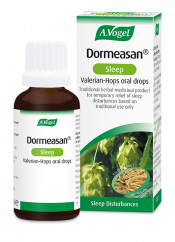What are the symptoms of dehydration?
According to the National Hydration Council, symptoms such as tiredness and fatigue make up around 20% of GP visits and it’s estimated that of these visits, dehydration is the cause of 1 in 10.1 This is an alarming figure and around 50% of GPs wished they had more time to look at their patient’s hydration habits.
But why is staying hydrated so important? Well, your body is around 60% water and two of your most important organs, your brain and your lungs are 73% and 83% water respectively. When you’re not getting enough, it can affect how almost every major organ in your body functions – that’s the main reason why humans can only survive days without fluids when they can go weeks without food.2
Even mild and moderate cases of dehydration will trigger symptoms such as:
- Headaches: Headaches are an extremely common symptom of dehydration and occur because the brain (73% water remember) can temporarily contract or shrink. Now, this might sound pretty serious – nobody wants to think of their brain shrinking! However, once you rehydrate yourself rest assured that your brain will return to its normal size.3
- Fatigue: Feeling exhausted but can't quite work out why? Dehydration could be making you sleepier as, when you're dehydrated, your blood pressure is affected, decreasing blood flow to the brain and potentially making you feel sleepier and fatigued.
- Dizziness: Altered blood pressure and poor circulation can easily make you feel light-headed and dizzy, affecting your ability to concentrate and perform mental tasks.
- Mood swings: I’m sure you can see a pattern developing by now – how your brain is impacted by dehydration can affect your mood, making you more irritable and prone to emotional outbursts.
- Constipation: If you’re not getting enough fluid, your body is going to start extracting it from other areas of your body, including your stools, making it harder to pass, keeping toxins and waste products trapped inside your colon.
- You feel cold: Feeling a bit chilly despite everyone around you prancing about in tee-shirts and light cardigans? Dehydration can restrict blood flow to your skin and affect how you regulate your body temperature, causing you to feel the cold.
Interestingly, one of the first symptoms you might experience if you’re dehydrated is hunger. This is because thirst and hunger cues are associated with the same area of the brain - the hypothalamus. Your body will also be using glycogen at a faster rate making you crave sugar and carbs for an extra energy source. Unfortunately, this often means that you reach for a packet of crisps rather than a glass of water, which can exacerbate your symptoms.
How does dehydration impact your sleep?
The National Sleep Foundation goes into a little bit of detail about how dehydration can affect your sleep, citing that going to bed even ‘mildly dehydrated’ can influence your sleep patterns.4 This is primarily because of how dehydration can affect your nasal and mouth passages, making them drier and more prone to irritation, increasing the likelihood of snoring.

However, what you might not be so aware of is how dehydration can affect melatonin, the sleep hormone. If you’re chronically dehydrated it can gradually reduce your levels of essential amino acids which are needed to produce melatonin, throwing off your circadian rhythm and making it harder for you to stay asleep.5
You should also consider that your body will naturally lose fluids as you sleep so if you don’t go to bed properly hydrated, you’re going to feel the impact the next day!
How much water should you be drinking?
The NHS recommends that you drink between 6-8 glasses of water a day6 although this figure can vary depending on how much you exercise. It’s important to note though, that plain water is best – caffeinated beverages like tea and coffee or fizzy drinks aren’t going to help to keep you properly hydrated and can strip your body of nutrients.

As an alternative, if you don’t like the taste of plain water, you could try infusing it with fresh fruit for a more exciting taste! If you want to learn more about the drinks you should be avoiding before bedtime, please check out our nutritionist Emma’s blog about 8 unexpected drinks that are bad for your health. Looking for ideas about how to infuse your water? Why not check out our recipe for Detox Water, including zesty lemon and refreshing mint!








